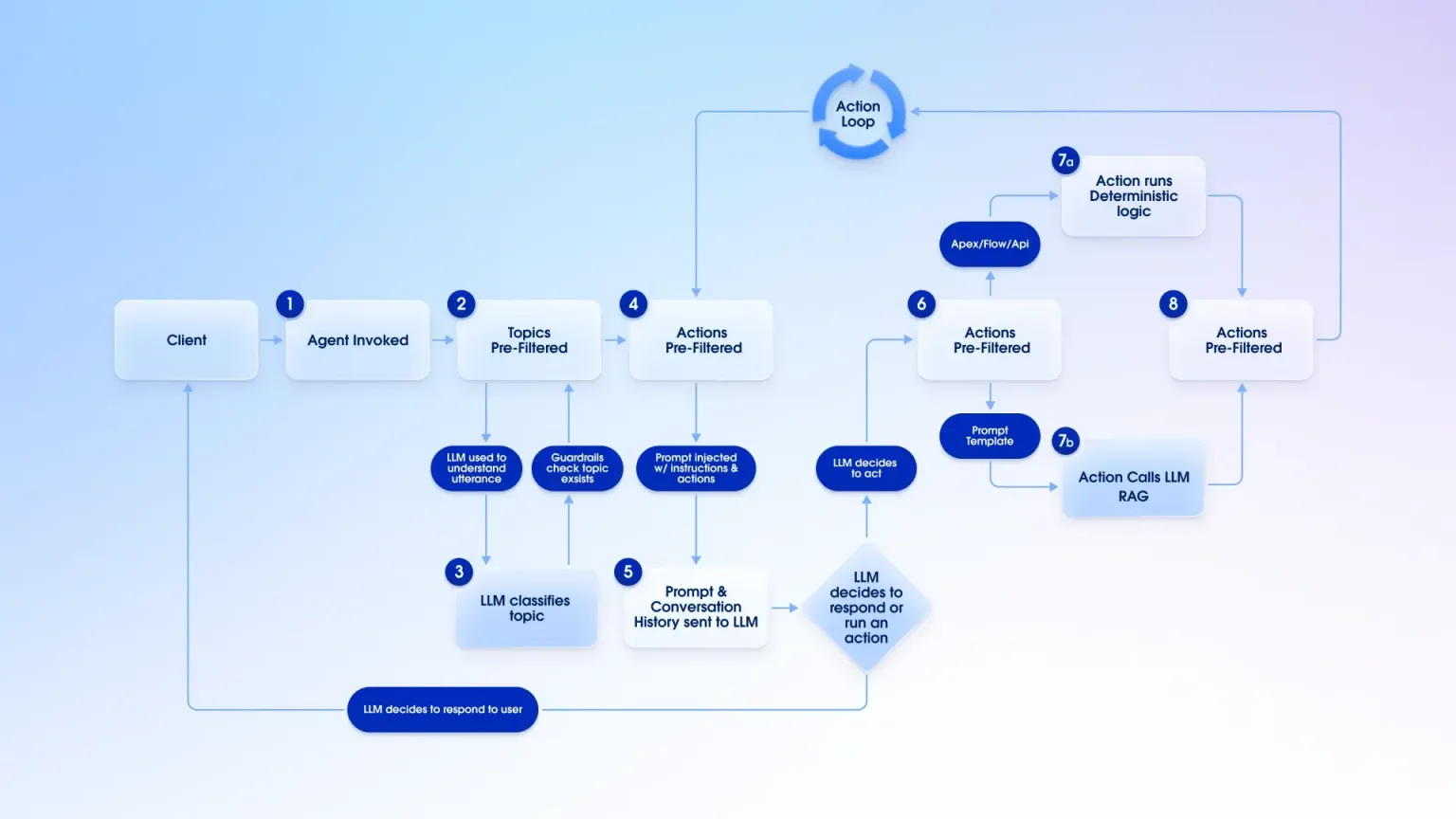Einstein
Salesforce Einstein is the company’s flagship AI layer, embedded across its platform to deliver predictive and generative capabilities. Einstein includes features like Einstein GPT for conversational AI, Einstein Discovery for predictive analytics, and Einstein Studio for custom model integration. With Einstein Studio, users can connect external large language models (LLMs) from providers like OpenAI or Azure and deploy them within Salesforce workflows using clicks, not code. These models can be activated to generate predictions, automate tasks, and personalize customer interactions at scale.
Agentforce 3
Agentforce 3 represents Salesforce’s next-generation agentic framework, designed to build autonomous, task-specific agents across departments. These agents leverage reasoning engines like GPT-4o by default, with support for alternatives such as Anthropic Claude via Amazon Bedrock. Agentforce agents can execute prompt templates, invoke Apex logic, and respond with multimodal content including visuals and files. The framework also supports instruction adherence scoring, web search integration, and real-time decisioning, making it ideal for dynamic customer service, sales enablement, and internal operations.
Trailhead
Trailhead, Salesforce’s learning platform, plays a pivotal role in democratizing AI adoption. Through modules like “Build AI Models in Einstein Studio” and “Connect Data Cloud to Copilot and Prompt Builder,” Trailhead guides users through hands-on projects that combine AI with CRM workflows. Learners can earn badges for configuring prompt templates, deploying agents, and integrating external data streams. Trailhead also offers curated playgrounds with Einstein AI and Data Cloud pre-installed, enabling experimentation with real-world scenarios like personalized guest check-ins or automated sales outreach.
Salesforce Data Cloud
Salesforce Data Cloud acts as the unified data layer powering AI-driven insights. It ingests and harmonizes data from multiple sources—structured and unstructured—and enables real-time activation across Salesforce apps. AI-based tagging and classification features automate metadata organization, while RAG 2.0 (Retrieval-Augmented Generation) enhances Agentforce accuracy by grounding responses in indexed data. Data Cloud also supports zero-copy architecture, allowing seamless access to external repositories like Zendesk or web crawlers without duplicating data.
AI Model Support
AI model support in Salesforce is centralized through Einstein Studio, which allows users to manage both Salesforce-managed and bring-your-own models (BYO-LLMs). Supported models include GPT-4o, Claude Sonnet, Gemini 2.0, and others from OpenAI, Azure, Amazon Bedrock, and Google Vertex AI. These models can be invoked via APIs, prompt templates, or Apex actions, and are geo-aware for compliance. Salesforce provides detailed configuration options for each model, including versioning, supported regions, and trust boundary considerations, ensuring enterprise-grade governance and flexibility.

Together, these elements form a cohesive AI ecosystem within Salesforce, enabling users to build intelligent workflows, autonomous agents, and personalized experiences. Whether you’re a developer integrating custom models, a business user configuring flows, or a learner exploring Trailhead, Salesforce’s AI offerings are designed to scale with your needs—bridging data, automation, and intelligence across the entire customer lifecycle.








